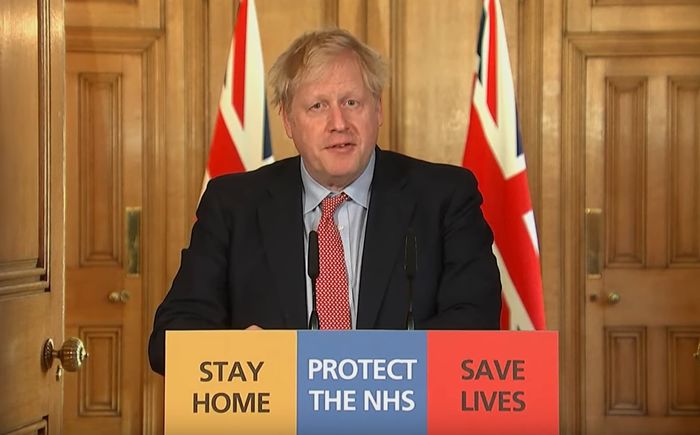Self-isolation presents a unique danger for those living in abusive environments
Scarlett Reiners argues for the need to understand that whilst the order to “stay at home” is universal, the sacrifices that we make in doing so are not.

Content Note: This article contains detailed discussion of domestic violence and impacts of the coronavirus. Please scroll to the bottom of the article for links to useful information and support.
Earlier this week, I was shocked to see a video of Piers Morgan ranting about the coronavirus pandemic on Good Morning Britain. In the clip, Morgan labels those who seem not to be adhering to social distancing measures “morons”, and exclaims, “what is wrong with people?” He then goes on to say, “You’re not going to fight anybody. You’re not going to risk your life being gunned down on trenches”, “You’re being asked to go home, sit there and do this — watch telly.”
Whilst his intention was most likely to promote the government’s call for everyone to stay inside and prevent the spread of the virus, his proclamation reveals a significant misjudgment that we, the British public, are guilty of making. Fundamentally, we still seem unable to understand that whilst the order to “stay at home” is universal, the sacrifices that we make in doing so are not.
In fact, to adhere to the rules of the lockdown, some people are being inadvertently instructed to do exactly that which Morgan insists nobody is being asked to do: to “risk your life”. For people in situations vulnerable to domestic abuse, the command to stay at home means succumbing to the prolonged threat of violence.
“Under the Conservative government, local authority spending on refuges has been drastically cut...”
An article published in The Guardian points out that reported cases of domestic violence are already on the rise in countries under quarantine. For example, in the Hubei province in China, the original epicentre of the coronavirus outbreak, domestic violence reports to police more than tripled during lockdown in February, from 47 last year to 162 this year. Worryingly, but predictably, this trend is being repeated across Europe.
In Spain, a nation gravely hit by the pandemic, the Catalan regional government reported that calls to its helpline had risen by 20% in the first few days of the confinement period. The country saw its first domestic violence fatality five days into lockdown when a woman was murdered by her husband in front of her children in Valencia. However, it seems that the Spanish government has acknowledged the increased vulnerability of certain citizens and vowed to protect them where they can, having told women that they will not be fined if they leave home to report abuse.
In the UK, it looks like we are a step behind. In PMQs earlier this month, Jeremy Corbyn warned that self-isolation would lead to an increase in domestic violence. He explained that “Domestic violence is only likely to increase if large numbers of people are having to self-isolate. Ten years of austerity has denied councils the funding they need to support victims of domestic abuse.” The Prime Minister replied, “we’ve just put record funding back into councils to support them in all their responsibilities.”
Yet, this increase in funding must only be seen in the context of previous cuts. Maya Oppenheim, women’s correspondent for The Independent, notes, “cuts have seen domestic abuse services decimated in recent years and there is already a chronic shortage of bed spaces in refuges.” Under the Conservative government, local authority spending on refuges has been drastically cut, once being £31.2 million in 2010 but then diminished to £23.9 million in 2017.
The government repeatedly tells us, “Stay at home. Protect the NHS. Save lives.” But, as Sandra Horley, chief executive of Refuge, the UK’s largest provider of shelters for domestic abuse victims, has said, “an estimated 1.6 million women in England and Wales experienced domestic abuse last year. To put it simply, home is not a safe place for these abused women, and their children.” Nor is it a safe place for the 576,000 men who were also victims of partner abuse in 2018/19.
I am in no way attempting to undermine the severity of the government’s decree, or the importance of physical distancing, nor am I discouraging anyone to self-isolate. However, during this pandemic, the greater sacrifice made by those vulnerable to domestic abuse, not just at higher risk of violence but also increasingly isolated from support networks, must be, at the absolute least, acknowledged and commended. Crucially, those in vulnerable situations need to be offered help and security by the government.
Piers Morgan, and the thousands of people sharing his video, have helped to paint self-isolation as a minimal sacrifice and to label those to whom it presents a challenge as failures. We must change the narrative, because, whilst the order to “stay at home” is universal, the sacrifices that we make in doing so are not.
If you have been affected by the issues raised in this article the support and information is available via the National Domestic Abuse Helpline, which is always open on 0808 2000 247, as well as on their website: https://www.nationaldahelpline.org.uk/
 Comment / Cambridge’s tourism risks commodifying students18 April 2025
Comment / Cambridge’s tourism risks commodifying students18 April 2025 News / Varsity ChatGPT survey17 April 2025
News / Varsity ChatGPT survey17 April 2025 News / Cambridge researchers build tool to predict cancer treatment success19 April 2025
News / Cambridge researchers build tool to predict cancer treatment success19 April 2025 News / Cambridge researchers find ‘strongest evidence yet’ of life on distant exoplanet18 April 2025
News / Cambridge researchers find ‘strongest evidence yet’ of life on distant exoplanet18 April 2025 News / Greenwich House occupiers miss deadline to respond to University legal action15 April 2025
News / Greenwich House occupiers miss deadline to respond to University legal action15 April 2025






